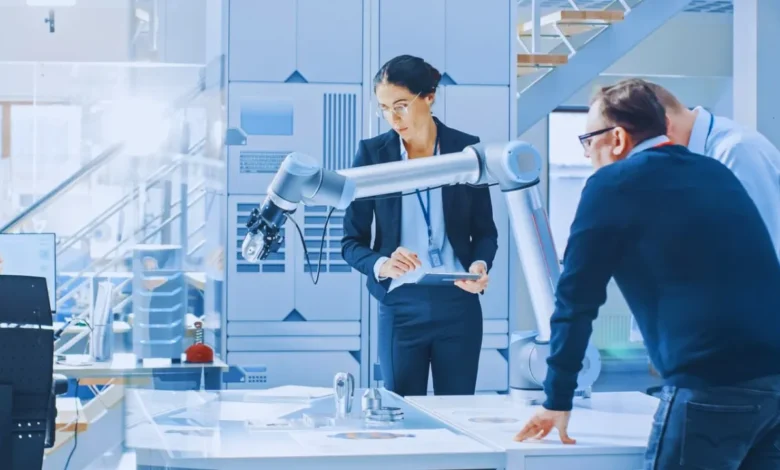Pros and Cons of Technology: Benefits and Drawbacks Explained in 2025

The pros and cons of technology will continue to redefine the way we live, work, and interact in 2025. From AI-powered tools and cloud computing to wearable gadgets and automated systems, these innovations enhance efficiency, convenience, and global connectivity. With smart cities, digital education, and healthcare advancements, technology is empowering individuals and transforming entire industries. As our world becomes increasingly digitized, it’s impossible to ignore the profound influence of tech on our personal and professional lives.
Yet, alongside these benefits come growing concerns about privacy breaches, screen addiction, job displacement, and cybersecurity threats. Pros and cons of technology bring progress, it also raises ethical and social dilemmas that must be addressed. Striking a balance between innovation and responsibility is key to ensuring long-term sustainability. The positive and negative sides of technology to better understand how it shapes our present and future..
Pros and Cons of Technology
Pros and cons of technology, in its various forms, has revolutionized modern society and transformed every aspect of life. From communication tools like smartphones and video calls to innovations in transport and education, technology has made the world more interconnected and efficient. It has also empowered businesses with automation, data analytics, and cloud services, enabling faster decision-making and higher productivity. In the healthcare sector, advanced medical equipment and AI-driven diagnostics are improving patient care and saving lives. Technology has brought unprecedented convenience, speed, and growth.
However, these advancements are not without their downsides. Overdependence on digital devices can lead to social isolation, decreased physical activity, and mental health concerns. Privacy issues, data breaches, and cyberattacks are becoming more frequent, raising fears over how personal information is stored and shared. Moreover, the pros and cons of technology-driven job automation may displace certain workers, contributing to income inequality and economic disruption in some sectors. These concerns underline the importance of responsible technology use and ethical innovation.
technology is a double-edged sword—while it offers immense benefits that drive progress, it also presents serious challenges that must be managed. Finding the right balance between embracing technological advancements and addressing their risks is key to sustainable development. As we continue into a future shaped by innovation, both the pros and cons of technology is essential for individuals, businesses, and governments alike.
Quick Comparison of Pros and Cons of Technology
| Pros | Cons |
| Enhances Communication | Loss of Privacy |
| Increases Efficiency | Social Isolation |
| Facilitates Education and Learning | Job Displacement |
| Drives Innovation | Dependence on Technology |
| Improves Healthcare | Security Risks |
The Pros of Technology
Pros and cons of technology enhance daily life by improving communication, efficiency, and convenience across all sectors. It enables faster access to information through the internet and smart devices.
Automation and AI streamline business operations, reducing human error and increasing productivity. Medical advancements powered by technology save lives and offer accurate diagnostics. Education has become more accessible with e-learning platforms and digital resources. Overall, technology supports innovation, global connectivity, and smarter problem-solving.
Enhancing Communication
One of the most significant advantages of technology is its ability to connect people across the globe. Social media, video calls, and instant messaging apps have made communication more accessible and convenient. People can now stay in touch with loved ones, colleagues, and friends no matter where they are, making the world feel smaller and more interconnected.
Increasing Efficiency
Technology streamlines various tasks, making work processes more efficient. In workplaces, automation tools and software reduce manual efforts, speed up operations, and improve overall productivity. Pros and cons of technology Businesses can perform complex calculations, store massive amounts of data, and conduct research much faster than ever before.
Facilitating Education and Learning
The digital age has brought new opportunities for learning through online courses, eBooks, and educational platforms. Technology has broken down geographical barriers, allowing students from around the world to access quality education and learn at their own pace. Virtual classrooms, educational apps, and digital resources have revolutionized traditional education methods.
Driving Innovation and Creativity
Technology plays a crucial role in driving innovation in fields like science, medicine, engineering, and entertainment. It encourages creativity by providing individuals with the tools and platforms to express themselves, create new pros and cons of technology, and new ideas. Entrepreneurs use technology to launch startups, and companies innovate with cutting-edge solutions to cater to global needs.
Improving Healthcare
Technology has enabled advanced diagnostic tools, telemedicine, and robotic surgeries, improving the accuracy and speed of medical treatments. Remote monitoring devices allow doctors to track patients’ health remotely, while mobile health apps help individuals manage their wellness effectively. pros and cons of technology have also contributed to medical research, accelerating the development of life-saving drugs and therapies.
The Cons of Technology
Despite its many benefits, technology also brings several drawbacks that can impact individuals and society. Excessive screen time and device dependency can lead to physical health issues like eye strain and poor posture. Data privacy and security concerns are increasing with the rise of online platforms and cloud storage. Social media and constant connectivity can contribute to anxiety, stress, and social isolation. Automation may lead to job displacement, especially in industries that rely on manual labor. Additionally, misinformation spreads rapidly online, making it harder to distinguish truth from falsehood.
Loss of Privacy
As technology advances, it has become easier for personal information to be collected, shared, and misused. From social media platforms to apps tracking our movements, the risk of compromising privacy is higher than ever. Data breaches, identity theft, and surveillance by both governments and corporations are growing concerns in the digital age.
Social Isolation
While technology connects people virtually, it has also contributed to a rise in social isolation. Spending too much time on devices and social media can result in individuals withdrawing from real-life social interactions. People may find themselves spending hours on their phones or computers instead of engaging in face-to-face conversations, leading to loneliness and emotional disconnection.
Job Displacement and Automation
Technology, especially automation, has led to the displacement of many jobs, particularly in manufacturing, retail, and other industries. While automation increases efficiency, it also eliminates the need for human labor in some sectors, leading to job losses and economic challenges. The advent of AI and robotics is expected to continue reshaping the job market.
Dependence on Technology
As people become increasingly reliant on technology, there is a growing concern about becoming too dependent on it. Whether it’s for communication, transportation, or entertainment, people often turn to technology without considering the potential consequences of malfunctioning devices or system failures. This dependence may lead to difficulties when technology is unavailable or breaks down.
Security Risks
With the rise of online platforms and connected devices, security risks have become a pressing issue. Cyberattacks, hacking, and data theft have affected individuals and organizations worldwide. Personal data, financial information, and sensitive business secrets are vulnerable to cybercriminals, making the need for robust cybersecurity practices essential.
Conclusion
Technology stands as a double-edged sword—offering remarkable progress while also posing real challenges. From transforming healthcare and education to enhancing digital communication and business efficiency, technology plays a key role in shaping modern life. However, growing concerns about data security, job displacement, and screen addiction make it essential to approach innovation with caution. A balanced of the benefits and drawbacks of technology helps individuals and organizations make smarter, future-ready decisions. By staying informed and adopting responsible practices, we can ensure that technology remains a powerful tool for positive change.
FAQs
What are the main benefits of technology?
Technology enhances communication, improves efficiency, facilitates learning, drives innovation, and contributes to healthcare advancements, making life more convenient and productive.
How has technology affected education?
Technology has revolutionized education by providing access to online learning, digital resources, and virtual classrooms, enabling students to from anywhere at any time.
What are the privacy concerns associated with technology?
Technology has made it easier for personal data to be collected, shared, and misused, leading to concerns about surveillance, data breaches, and identity theft.
Can technology lead to job loss?
Yes, automation and AI are replacing jobs in certain industries, leading to job displacement. However, it also creates new opportunities in tech-related fields.
How does technology impact social relationships?
While technology connects people virtually, it can also lead to social isolation and reduce face-to-face interactions, causing emotional disconnection for some individuals.
What are the security risks associated with technology?
Cyberattacks, data breaches, and hacking are some of the significant security risks posed by technology. Personal and business information is often vulnerable to cybercriminals.
Is technology for healthcare?
Yes, technology has transformed healthcare with advancements in diagnostics, telemedicine, and treatment methods. It improves patient care, enhances research, and enables remote monitoring.


